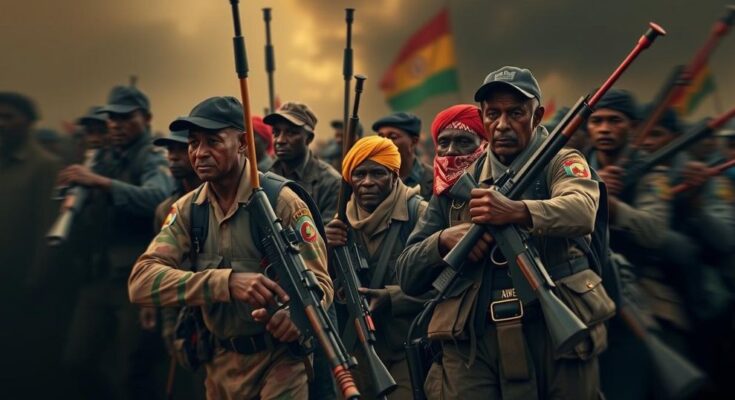The Sudanese civil war has intensified since mid-April 2023, with key military leaders General al-Burhan and Hemeti engaging in violent conflict. This situation poses significant regional risks, prompting international mediation from various bodies to restore peace and stability. The future of Sudan hinges on resolving internal power struggles and transitioning to effective governance.
The ongoing civil war in Sudan has seen intense conflict since April 15, 2023, between two prominent military leaders: General Abdel Fattah al-Burhan, commanding the Sudanese Armed Forces, and Mohamed Hamdan Dagalo, known as Hemeti, who leads the Rapid Support Forces (RSF). This power struggle, primarily concentrated in Khartoum and Darfur, has escalated tensions across the region, attracting significant attention from the international community. Various organizations, including the United Nations, the African Union, the Arab League, and IGAD, are actively engaged in mediation efforts to resolve the conflict and stabilize the situation.
The civil war in Sudan erupted from a power struggle between two military factions vying for control. General al-Burhan and Dagalo have been at the forefront of this violent clash, which has resulted in widespread violence and a humanitarian crisis. The impacts of this conflict extend beyond Sudan, affecting neighboring countries and requiring international intervention. Diplomatic efforts are underway to bring about a ceasefire and foster dialogue between the warring parties, highlighting the urgent need for a stable governance structure in Sudan.
The situation in Sudan remains precarious as the conflict continues to unfold with profound implications for regional stability. The transition from a military-led government to a democratic governance structure is critical for the future of the country. Continued international mediation efforts will play a pivotal role in seeking a peaceful resolution that addresses the complex power dynamics at play.
Original Source: www.africaintelligence.com




